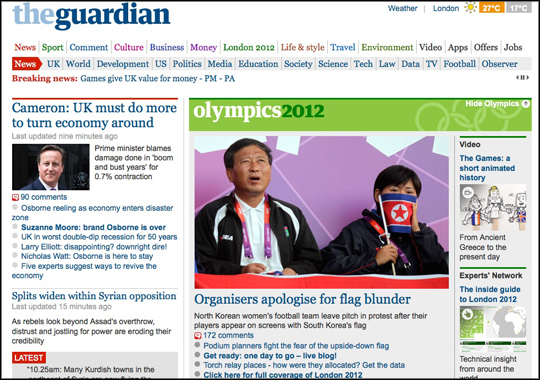The Times has published a video today on YouTube which hears from deputy editor Keith Blackmore, design editor Jon Hill and deputy picture editor Elizabeth Orcutt, as well as communities editor Ben Whitelaw, about the thinking behind its Olympic wraps. As Blackmore says:
The first one was terrifying. Once you made a commitment to do it, and we’d committed right from the start to do this every single day of the Olympic games … you’ve got to do it.
The video includes a look at the decision behind the very first wrap, which wanted to visualise the dawning of the Olympics in London. The Times sent a photographer out every morning the week ahead of the Olympics to photograph the sun coming up over the Olympic stadium, before it was decided a shot of the London Bridge with its Olympic rings was the better shot for the job.
The video, which can be played below, also talks about the reaction to the wraps on social media from the community.

